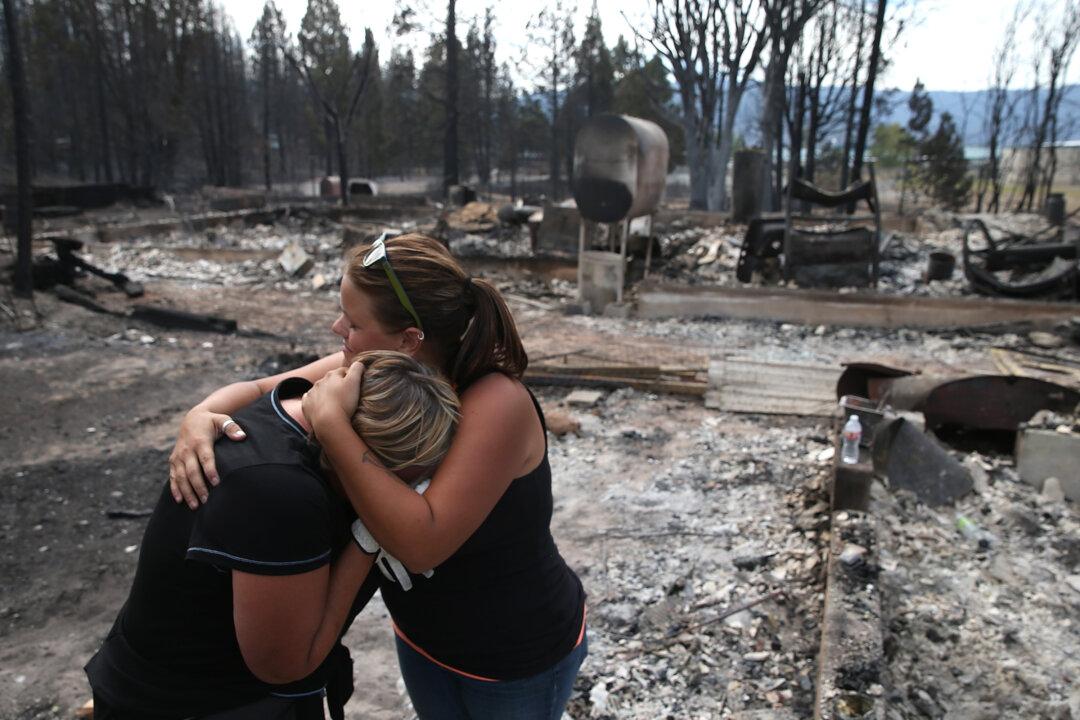CLEARLAKE OAKS, Calif.—A Northern California wildfire that incinerated 43 homes and sent thousands fleeing was reduced to embers and smoke as winds died and evacuees returned home — but some found only ashes.
Most of the 1,200 or so people forced from their homes by the July 29 blaze were allowed back by Friday, and two highways used as firebreaks reopened.
The blaze was 62 percent contained by Saturday morning after sweeping through nearly 109 square miles of rural timberlands and brushy hills in Lake, Colusa and Yolo counties.





